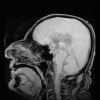Hi,
On occasions when I eat pumpkin bread encrusted with pumpkin seeds (called "pepitas") I seem to have noticed 2 effects,
- Anorgasmia (difficulty reaching orgasm)
- Slower beard growth the next morning
I was surprised by how few seeds it takes, barely 8-10 crushed ones on the bread loaf, so the effects seem to be very strong. I confirmed in the Reply from 14 Aug. 2014 that some people here only eat a tablespoon of pepitas a day,
I just weighed some seeds and determined that 20 of them weigh 4 g, hence you would need just 4(!) seeds to get that 400 mg dose from the study. I have a tablespoon of them each morning on my muesli, which is about 10 g - so I actually get more than ten times that dose!
As you've probably guessed, I found this thread in the context of hair loss/MPB and anti-DHT research. But in my research, no one actually talks about pumpkin seeds themselves, everyone talks about the oil only (PSO), which is puzzling to me.
Could anyone comment on the following questions:
1) Does anyone else also get anorgasmia or reduced ejaculate after snacking on the seeds?
2) Is this evidence of anti-DHT activity, or something else? How would you verify that it's benefiting scalp hair? Does anyone have reasonable proof of daily consumption helping hair growth/maintenance?
3) If this regimen is maintained indefinitely every day, is there actual harm to the prostate (or general health) due to not getting normal sexual arousal and response? Is it harmful to not ejaculate properly and easily?
(BTW: I registered on this site and it told me the price was $50 for membership, but somehow it never redirected to me PayPal and I never paid -- is the ability to post free now?)























































